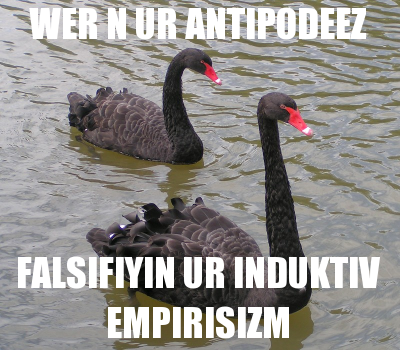Less shiny.

Dan Meyer, an inspirational teacher I’ve mentioned plenty of times before, has as his mantra “less helpful”. You can see it on his blog and watch him explain what he means in this TEDx presentation (see especially his stuff on Clever Hans).
I’ve decided my mantra is going to be less shiny. Just as Dan helped his students (he’s currently pursuing a full-time PhD) by being less helpful and not spoon-feeding them, so I’m going to help everyone I meet by being, and by promoting the concept of being, less shiny. That’s not to say that things can’t be exquisitely well-designed (I’m typing this on a MacBook Pro) but function needs to enter the equation on an least an equal footing with form.
At this point I’d like to drop into the mix that I bought two (original, 16GB wifi) iPads today – one for my wife and son, and one for me. Together they cost the same as the wifi + 3G model I was tempted by a few months ago. They’re less shiny – and less expensive – than they were yesterday. Why? The announcement of the iPad 2.
It’s not always a question of “We can afford it, so…” As I explained when divesting in 2009, there’s a difference between recognising the appropriate use of technology and being the equivalent of a dog chasing shiny cars. The iPad’s actually useful now: you can edit Google Docs (the holy grail for me). There’s established workflows, gestures and norms that surround it. I’d say there’s definitely a case for using them in a considered and focused way within educational environments.
Don’t get me wrong: I’m not saying that we should always hold off buying new products straight away: we should just know what to do with them. As Agnes Kukulska-Hulme pointed out when I interviewed her for the JISC Mobile & Wireless Technologies Review I undertook last year, sometimes a device comes out (in her case, e-book readers) that almost exactly solves the problem you’ve defined.
So what does it mean to use educational technology appropriately? I refer you back to The perils of shiny shiny educational technology and the trusty SAMR model. Pin it to your wall.
Image CC BY Patrick Hoesly


